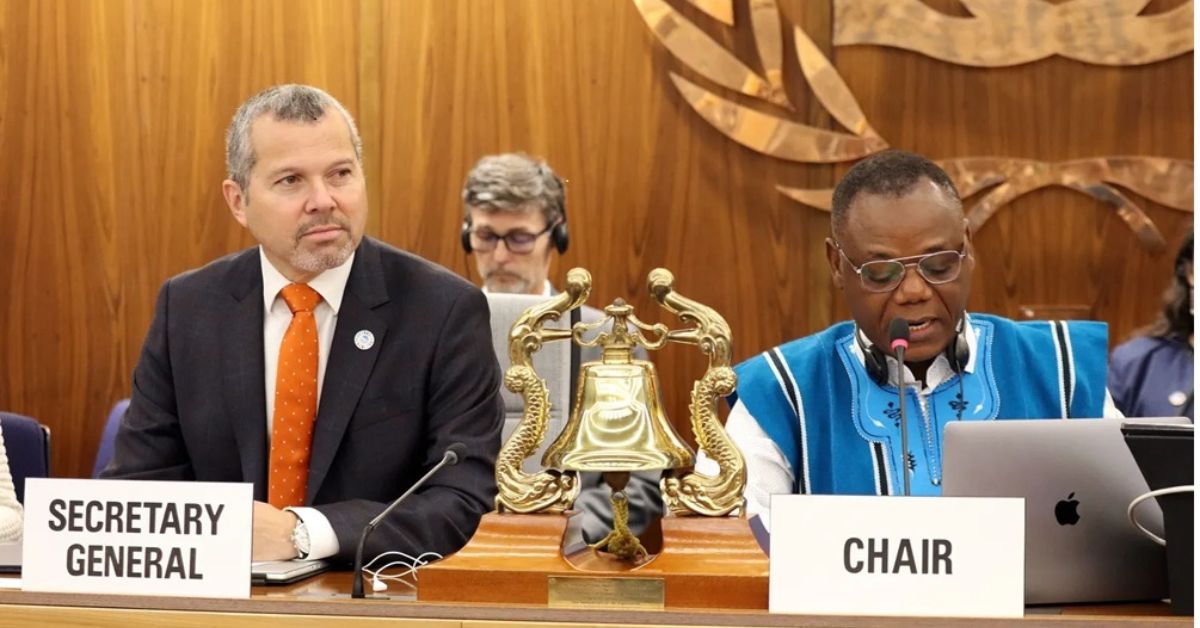The International Maritime Organization’s (IMO) proposed Net-Zero Framework (NZF) gained strong momentum on the first day of a high-stakes four-day summit in London, with a clear majority of countries voicing support for the plan—despite sharp opposition and threats from the United States delegation.
The NZF aims to establish binding global emissions-reduction measures for the maritime sector, driving a major transition toward green hydrogen-based shipping fuels over the coming decades. According to the Green Hydrogen Organisation, the framework’s implementation would require about 200 million tonnes of green ammonia and methanol by 2040.
All European nations expressed their backing for the framework, which proposes a system of financial penalties for high-emission vessels. The revenues would be channelled into a “net zero fund” designed to reward low-emission ships, foster innovation and training, and provide financial assistance to vulnerable nations. Notably, small island developing states, which had previously criticised the framework for not going far enough, also endorsed it during the opening session.
However, opposition came from the US delegation, representing the Trump administration, alongside a few fossil-fuel-reliant nations such as Saudi Arabia and Russia. According to TradeWinds, around 15 countries raised concerns, while at least 46 nations declared their support—some of which had previously abstained during the April meeting that provisionally approved the NZF draft by 63 votes to 16.
The US was the only country to explicitly reject any regulation of shipping emissions. Saudi Arabia, which initially opposed certain elements, later softened its stance, saying it did not wish to abandon the framework altogether.
The NZF represents an amendment to Annex VI of the IMO’s MARPOL Convention on marine pollution. Its adoption requires a two-thirds majority among the 108 signatory nations, meaning the US alone cannot block it. Nevertheless, American officials have attempted to undermine the process through threats of economic retaliation—including sanctions against officials, port restrictions on ships from supporting nations, higher port fees, visa limitations for seafarers, and other financial penalties.
The US delegation argued that the net zero fund could become “a giant environmental slush fund” and criticised the focus on “expensive and unproven” alternative fuels.
IMO Secretary-General Arsenio Dominguez dismissed these claims, emphasizing that the organisation has long administered international funds—such as oil pollution compensation mechanisms—from its London headquarters. He also warned that delaying adoption would create uncertainty, deterring investment and prompting fragmented regional regulations.
“Prolonged uncertainty will put off investments and diminish confidence in the IMO,” Dominguez told delegates. “Adopting this plan will ultimately reduce the costs of decarbonisation and provide a coherent global framework.”
Despite the tensions, backers remain confident the framework will be formally adopted and enter into force in 2027.
“I understand that some view this outcome as not ambitious enough, while others fear the reduction targets are too demanding,” Dominguez said. “The IMO Net-Zero Framework may not be perfect, but it offers a balanced foundation to move forward and deliver meaningful progress toward a cleaner, more sustainable shipping industry.”









